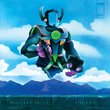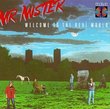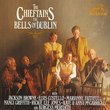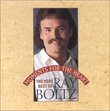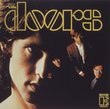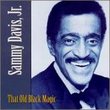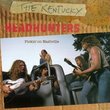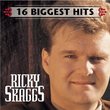| All Artists: Can Title: Ege Bamyasi Members Wishing: 6 Total Copies: 0 Label: Mute U.S. Original Release Date: 1/1/1972 Re-Release Date: 5/19/1998 Album Type: Original recording reissued Genres: Dance & Electronic, Alternative Rock, International Music, Special Interest, New Age, Pop, Rock Styles: Electronica, Europe, Continental Europe, Experimental Music, Progressive, Progressive Rock Number of Discs: 1 SwapaCD Credits: 1 UPC: 724596905623 |
Search - Can :: Ege Bamyasi
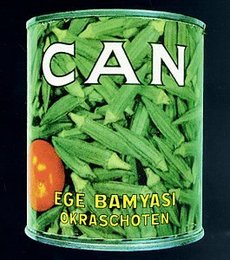 | Can Ege Bamyasi Genres: Dance & Electronic, Alternative Rock, International Music, Special Interest, New Age, Pop, Rock
By the time of 1972's Ege Bamyasi, Can had consolidated, with singer Damo Suzuki fully entrenched as the unstable Michael Mooney's replacement. Suzuki's vocals range from shrieks to inaudible chanting, tackling subjects as... more » |
Larger Image |
CD DetailsSynopsis
Amazon.com By the time of 1972's Ege Bamyasi, Can had consolidated, with singer Damo Suzuki fully entrenched as the unstable Michael Mooney's replacement. Suzuki's vocals range from shrieks to inaudible chanting, tackling subjects as mundane as "your vitamin C" while implying an archetypal depth. Evidence of a band at the height of their interactive powers is here. Anchored by the "percussion and flexation" (as he's credited) of Jaki Liebezeit, Can delivers seven pounding sermons of rhythmic prowess, peaking with the 10:30 sound storm of "Soup." Liebezeit's long drum riff in "Pinch"--pegged by a resounding bass thoom at the end of each repetition--creates an ellipse in which feedback bursts, guitar and keyboard note clusters, and Damo's vocal witchery combine into a perfectly balanced, loping cyclone, with each element beautifully playing off the next. Like Miles's On the Corner, Ege Bamyasi is a definitive statement on merging jazz ideology with the surging menace of rock & roll. --Gene Booth Similar CDs
Similarly Requested CDs
|
CD ReviewsTago mago's slightly ignored brother Tig Chamberlin | 11/06/2003 (4 out of 5 stars) "everybody who knows can, knows that the tago mago-ege bamyasi-future days era was by far and away the most interesting and exciting, and, while good old tago has been reviewed almost 40 times here, ege bamyasi remains slightly ignored. come on! this album deserves equal attention people! anyway, sfter releasing what is arguably one of the greatest influences on modern rock music with tago mago the year before, can were faced with the tricky challenge of following it up. it would have been a mistake to try to make a sprawling epic, a tago mago part II really; tago mago sounded like a one-off when it was released and should remain that way. which i why i feel that the bands decision to assemble an much shorter album was so well chosen (not that the band were probably thinking this, they were always so implulsive anyway). ege bamyasi sounds like what chart topping pop would have sounded like if someone like joe meek had revolutionised pop music instead of the beatles: melodic, funky, inventive and funny. it begins with one of the longest tracks, and one with the strongest relationship to the music on tago. pinch is a ten minute jazz-funk workout with jaki liebezeit at the driving seat, proving that he was just as capable of incessant, complex grooves as funky, playful hard-hitting jazz improvisation. he is wonderful on the track, so much delicate touch and hard punches, the rest of the band follow with subtle touches: karoli's wailing guitar feedback is pure minimalism, schmidt's psych-funk keyboards, czukay's snaking basslines and, of course, the incomprehensible suzuki mantras. it remains one of my favorite can tracks, and one of the strangest. the only other lengthy track is soup, which, at ten minutes-plus, can be filed away with augmn and peking o for collage madness. it is the weakest track here. starting with a loud, rather punky guitar section (the loudest bit on the album) it quickly discards all notions of structure in favour of bizarre ethno-percussion and keyboard vomiting. but why is it even here? fundamentally, it is no worse than the second half of tago mago, but it doesn't seem necessary. i have heard that it was quickly recorded as a deadline loomed, and it sounds it. the reason i am happy to put up with augmn and peking o off tago mago but not this is that the delicious progression of atmosphere isn't there as it was on TG. impressive, yes, but do you really want this shoved in the middle of such a wonderful album, taking up more than a quarter of the time? but, tig, augmn and peking o take up MORE than a quarter of the tago mago. true, but can you honestly say that you listen to those tracks every time you slot the album into your player? i doubt it. tago mago was perfectly designed for you to avoid those tracks if you didn't want them... just listen from track 1 to 4 and then maybe whack on bring me coffee or tea. simple. those tracks were there if you really wanted to slip into the psychosis of the album's trip, something which i have enjoyed doing. but not everytime. on this occassion you are practically forced to listen to it. especially when the standout previous track segues into it. vitamin c is a rampant bossanova stomp which is, amazingly, built almost entirely from drums, bass and vocals. the density of the sound they create here puts any band who needs to draft in a 40-piece orchestra to flesh out their music to shame. it just rocks! the chorus (yes, a chorus on a can ablum, and there are many more) is so dumbly catch it could only have been written by a genius or an idiot savant (stand up damo!) you'll be humming this for years to come. elsewhere, sing swan song is a gorgeous ambient waltz, czukay's subaquatic bass throbbing throughout and damo suzuki singing beatifully. the slightly eastern ambience only adds to the song's mystique. one more night is the epitomy of minimalism, each band member contibuting the barest hint of melody and rhythm but producing an incredibly dense whole. the final two tracks are the most obviously conventional (in can's terms) but are slightly obscured by coming right after soup. i'm so green is a light funky number with a playful melody and increasing pace while spoon (a number one single in native germany! why doesn't this ever happen in england?) is a great showdown between jaki liebezeit and a drum machine driving an oddly anthemnic melody along. it ends the album on a playful note which begs "play me again". and you do... a lot. the main problem (and the reason i can't give the album 5 stars) is that the sequencing is all wrong. first three tracks, fine. in fact, the first four tracks are excellent, but with vitamin c blending so seamlessly into soup you either have to be very tactfull with your volume button, or suffer the horribly jarring experience of cutting a track off mid-flow to avoid soup. better would have been like this: 1, 2, 3, 6, 7, 4, 5. that way you can bask in the beauty of can at their weirdo-pop best and sink into their freak-out at the end of you wish. nevertheless, this is an unbelievable album, one which deserves more praise than it gets. it is just as full of inventiveness and verve as tago mago and more accessible too. this would be my first chioce of can album to introduce a friend to their immense work. as it stands it is some of the most mind-blowing music ever produced." The best 40 minutes you can possibly give yr ears. Funkmeister G | 11/14/2003 (5 out of 5 stars) "kan u dig it!!? it appears I haven't reviewed this yet which is inexplicable since I love it more than possibly anything ever. want to run home, find the disc, whack it on & experience pure joyous SOUND to the maxx. the perfect blend of schooled muso & freefrom, experimental & funk, pop yet uncommercial, but bah all this be irrelevant. unless you're a strict genre nazi or devoid of taste it's a more than worthwhile purchase. could write more, favourite songs but they're all good, there's a couple of extended freakout jams, a couple of slow chillers & 3 perfect short hits all mixed up just right. I should work in sales." One of their best William Scalzo | Niagara Falls, NY | 04/03/2005 (5 out of 5 stars) "Can's 4th album found them moving in a more ambient direction after the experimental freakouts that culminated with Tago Mago. Ege Bamyasi has just the right mix of the two styles to make it one of Can's most entertaining and satisfying recordings, and while I rate Future Days as the band's ultimate achievement, I would recommend Ege Bamyasi as an ideal introduction to the band since it neatly and concisely brings together the various aspects of the Can sound on one CD.
The two longer workouts, "Pinch" and "Soup," recall the wild and improvised nature of Tago Mago while reining in enough of that album's excess to make them more accessible. While many of their fellow Krautrock bands tended to be electronics-heavy, Can used a standard lineup of vocals-guitar-keys-bass-drums, then proceeded to do things with their instruments that were anything but standard. Jaki Liebezeit was a human drum machine capable of startlingly precise rhythms and polyrhythms that provided the beat-centric base for the Can sound. Besides his intuitive and brilliant bass work, Holger Czukay loved playing around with experimental studio technology and provided an additional veneer to the sound. Keyboardist Irmin Schmidt and guitarist Michael Karoli avoided any of the "normal" soloing associated with their instruments, instead choosing to coax new and different effects which included everything from ambient soundscapes to percussive type attacks. As for Japanese singer Damo Suzuki, his completely unique mixture of opium den ranting, beat poetry and assorted chants, croons and shouts re-wrote the definition of "lead singer." "Sing Swan Song" begins with watery nature sounds just like Yes' Close To The Edge the same year, before settling into an atmospheric mid-tempo groove entwined with Karoli's sinewy lines and Suzuki's drowsy croon. "One More Night" and "Vitamin C" both show just why this band is considered so influential. You cannot believe this stuff was recorded way back in 1972 when it sounds so fresh and modern. Both songs are insanely catchy, and my only complaint is that I wish "Vitamin C" was longer so I wouldn't have to hit the repeat button all the time. The album is rounded out by a pair of 3-minute "pop" songs that showed just how far Can had come from the 20-minute jams of only a year earlier. Both songs set up the usual killer rhythmic underpinning, while everybody else, even Suzuki, seems to be trying to sound like a "normal" pop group. Which of course they don't, and we wouldn't want it any other way! There isn't a bad track on this album, and it has hooks that will settle deep within your psyche. It's experimental and avant-garde, yet entertaining and accessible. 5 stars." |

 Track Listings (7) - Disc #1
Track Listings (7) - Disc #1